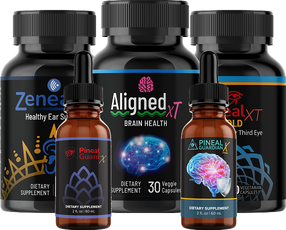Alzheimer's Disease… The Unexpected Diet Plan Nobody Wanted

Last month, my friend Sarah called me in tears. Her mother, Mabel, had been diagnosed with Alzheimer's disease two years ago, but something new was troubling Sarah. "Mom's clothes are hanging off her," she said. "It's like she's disappearing before my eyes."
Mabel, once a vibrant woman who loved cooking elaborate Sunday dinners, had lost 30 pounds in just a few months. Sarah couldn't understand it - her father was making sure Mabel ate regularly. Yet, the weight kept falling off.
This story isn't unique. As an American health expert, I've seen how Alzheimer's disease doesn't just steal memories - it can dramatically impact weight too. Today, we're diving into this often-overlooked aspect of Alzheimer's, a disease affecting more than 6.7 million Americans.
But first, I want to hear from you…
Has Alzheimer's touched your life or the life of someone you know? Have you noticed any unexpected changes in weight or eating habits?
Share your experiences by replying to me - your insights could be a lifeline for others navigating this challenging journey.
Now, let's explore the fascinating and sometimes alarming connection between Alzheimer's and weight:

The Forgetting Factor: As Mabel's case shows, Alzheimer's patients may simply forget to eat or drink. It's not just about memory loss; it's about the brain's ability to recognize hunger cues and initiate eating.
Taste Bud Betrayal: Alzheimer's can alter a person's sense of taste and smell. In fact, research suggests that changes in smell might be an early sign of the disease progressing from mild cognitive impairment to full-blown Alzheimer's.
The Wandering Workout: Many Alzheimer's patients, like Mabel, experience increased agitation and wandering behaviors. This constant movement can burn calories rapidly, contributing to weight loss.
Swallowing Struggles: In advanced stages, Alzheimer's can affect the ability to swallow safely, making eating a challenge and increasing the risk of malnutrition.
Medication Side Effects: Some Alzheimer's medications can suppress appetite or cause nausea, further complicating the weight issue.
But here's a twist - while weight loss is common, some individuals with Alzheimer's may actually gain weight, especially in the early stages. This can happen due to decreased physical activity or a preference for high-calorie comfort foods as other pleasures in life become more difficult to enjoy.
It's crucial to understand that Alzheimer's doesn't discriminate. While age is the biggest risk factor, with 33.3% of people 85 and older having the disease, it also disproportionately affects certain demographics.
For instance, 19% of Black Americans and 14% of Hispanic Americans over 65 have Alzheimer's, compared to 10% of white Americans in the same age group.
Women, like Mabel, are at higher risk, with 1 in 5 women likely to develop Alzheimer's in their lifetime, compared to 1 in 10 men. Interestingly, there may be connections between hormonal changes, pregnancy complications, and Alzheimer's risk in women, though more research is needed.
So, what can we do to support our loved ones with Alzheimer's and maintain a healthy weight?
Here's what Sarah learned…
- Offer frequent, nutrient-dense meals and snacks
- Create a calm, distraction-free environment during mealtimes
- Provide foods with strong flavors to compensate for sensory changes
- Consider nutritional supplements under medical supervision
- Encourage safe physical activity to maintain muscle mass

Remember, every Alzheimer's journey is unique. The key is to stay vigilant, communicate with healthcare providers, and approach nutrition with creativity and compassion.
Intriguingly, research suggests that what's good for your heart may also be good for your brain. Adopting an anti-inflammatory diet, managing blood pressure and cholesterol, staying physically active, and quitting smoking could potentially help prevent or manage both heart disease and Alzheimer's.




